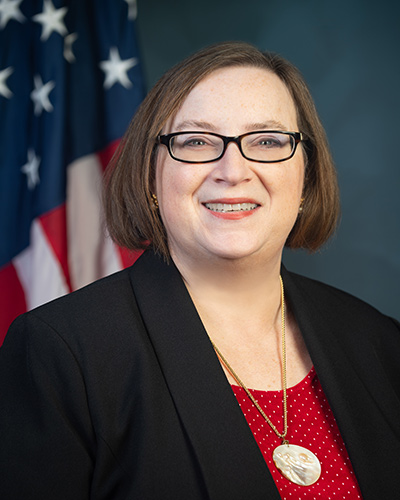In June of 2021, President Joe Biden selected housing advocate Julia Gordon to serve as the first full-time Assistant Secretary for Housing, Federal Housing Commissioner (otherwise known as FHA Commissioner) for his administration.
Gordon would begin a confirmation odyssey that would go on to last nearly a year, having finally been confirmed by the U.S. Senate in May of this year. Her confirmation was lauded by mortgage finance professionals and industry representatives, and since her confirmation, Gordon has spearheaded several housing policy initiatives including some related to the Federal Housing Administration (FHA)’s Home Equity Conversion Mortgage (HECM) program.
The FHA Commissioner is a key figure in the administration and curation of the HECM program, and to get a better understanding of what could guide the new commissioner’s ongoing philosophy related to HECM, RMD sat down with Commissioner Julia Gordon to discuss the current reality and potential future of the HECM program.
Current HECM program strength
Holders of the office of FHA Commissioner during the final few years of the Trump administration varied in terms of their overarching perspectives of the HECM program. Brian Montgomery — who would go on to later become the Deputy Secretary of the U.S. Department of Housing and Urban Development (HUD) — maintained a focus on strengthening the HECM program by instituting a series of major changes, while his successor Dana Wade had expressed skepticism regarding the HECM program in instances where she commented on it.

For Gordon and the Biden administration, the HECM program is generally in a good place though the administration is certainly paying close attention to it, Gordon told RMD.
“Right now, I think the HECM program is as strong as it’s been,” she explained. “We have, over the years, gained a lot of experience with this product, and I think we have learned how to better manage it. Relationships with stakeholders, both on the industry side and on the consumer advocacy side, are good. And, it is a market where this product right now is useful for many people who see a lot of equity in their home that they can’t otherwise access.”
That generally good place likely means that no major policy changes related to the reverse mortgage program are afoot, she says.
“The fact is that right now, we believe the program is largely operating well,” she says. “We have put out some policy recently that we hope will always be able to make it incrementally better. We are also going to deal with external changes that may affect the program. One that comes to mind would be changing over from LIBOR to a different index, which is relevant for all lenders for all purposes, but in particular, is relevant in the HECM environment.”
Gordon also mentioned that FHA is likely to make “continued efforts to tweak policy” if it’s determined that certain policy shifts would better suit the program’s borrowers, but that anything resembling a “shakeup” for the program is unlikely in the near term.
Consumer concerns and counseling beyond the borrower
When asked about the ongoing reputational issues faced by the reverse mortgage industry, Gordon described how issues related to public perceptions of mortgage finance business and products are at the front of her mind.
“I’m one of the first, if not the first FHA Commissioner to come from a background of consumer advocacy in the finance space,” she says. “So, I am very attuned to consumer-facing concerns. Right now, I believe the HECM program within FHA has developed a number of consumer protections that make it a good choice for many people in the situation of needing to access the equity in their home, particularly for seniors.”
Gordon also mentioned the role of education and counseling in the creation of new reverse mortgage business, and the necessity that comes with a need to understand key differences between forward and reverse mortgage products before a customer moves forward.
“As you may know, we do require housing counseling for HECM borrowers,” she says. “And we recommend that not only the borrowers themselves participate in housing counseling, but that their families or anyone else who may be helping them out with their finances also become educated about the program so that they understand how it works and so that there are no surprises for anybody.”
HECM as a time-honored instrument and the eyes of FHA
On the front of consumer sensitivity, Gordon also mentioned that the mass proliferation of other kinds of financial products for consumers helps to highlight another strength of the reverse mortgage program: HECM has now been around for over three decades, making it a well-known quantity from the perspective of FHA.
“There is a proliferation of products, [including] in the fintech space or just in the private space, that do not have the long track record that HECM has and where their marketing may be very focused on running down the HECM program,” Gordon explains. “[Marketing which tells people], ‘you should do this instead of the HECM program.’ I would advise consumers to be very careful when they hear that.”
Certain products that are emerging in these spaces are comparatively untried, so consumers could find that the general scrutiny paid to the HECM program might benefit them, Gordon explains.
“The FHA HECM program is heavily-regulated [and is one that] those of us at FHA ourselves keeping a very close eye on, but lenders and consumer groups also keep a close eye on it,” she says. “[There are] lots of built-in protections right now, and for borrowers who are obtaining the product for the right purposes, it can be a very, very powerful move.”
Look for more from RMD’s interview with Commissioner Gordon in the coming days.





